About Sleep Apnea
Types, Symptoms, Effects
Sleep Apnea & Types
Sleep apnea is a very common sleep disorder characterized by repeated choking in breathing throughout the sleep. These pauses, called apneas, are caused by the collapse of soft tissue in the upper airway, which prevents air from reaching the lungs.
Sleep apnea disturbs the sleep cycle and affects daily routine, energy level, mental performance and long-term health. You must consult a sleep specialist or contact us if you feel snoring and excessive daytime sleepiness, and for further evaluation and treatment options. Sleep apnea is generally categorized in three types:
Obstructive Sleep Apnea (OSA)
OSA is a most common type of sleep apnea in which obstruction in upper airway causes breath pausing and choking, resulting in restless sleep through out a night. OSA can be easily diagnosed with any type of sleep test, either at your home or in a sleep lab. This type of apnea is usually treated with CPAP, Auto CPAP or Auto BiPAP machines.
Central Sleep Apnea (CSA)
CSA is less common than OSA and it is always be trickier to diagnose and treat this type of apnea. Unlike OSA, central sleep apnea occurs because brain does not send proper signals to the muscles that control breathing. Common diseases associated with central sleep apnea include: severe obesity, Parkinson’s disease, stroke, and chronic heart failure. Certain drugs, such as opioids, can also play a role in central sleep apnea. CSA can be diagnosed in split-night level I sleep studies and treated with fixed CPAP, Auto SV or BiPAP ST mode.
Complex Sleep Apnea
Doctors have more recently identified a third type of sleep apnea called complex sleep apnea, which is a combination of obstructive sleep apnea and central sleep apnea. Patients with this type of sleep apnea may at first seem to have OSA, but unlike typical patients with OSA, these patients’ symptoms are not fully addressed with the use of CPAP and its failure to alleviate symptoms would suggest the patient had central sleep apnea. Complex sleep apnea can be treated with BiPAP AutoSV or BiPAP ST.
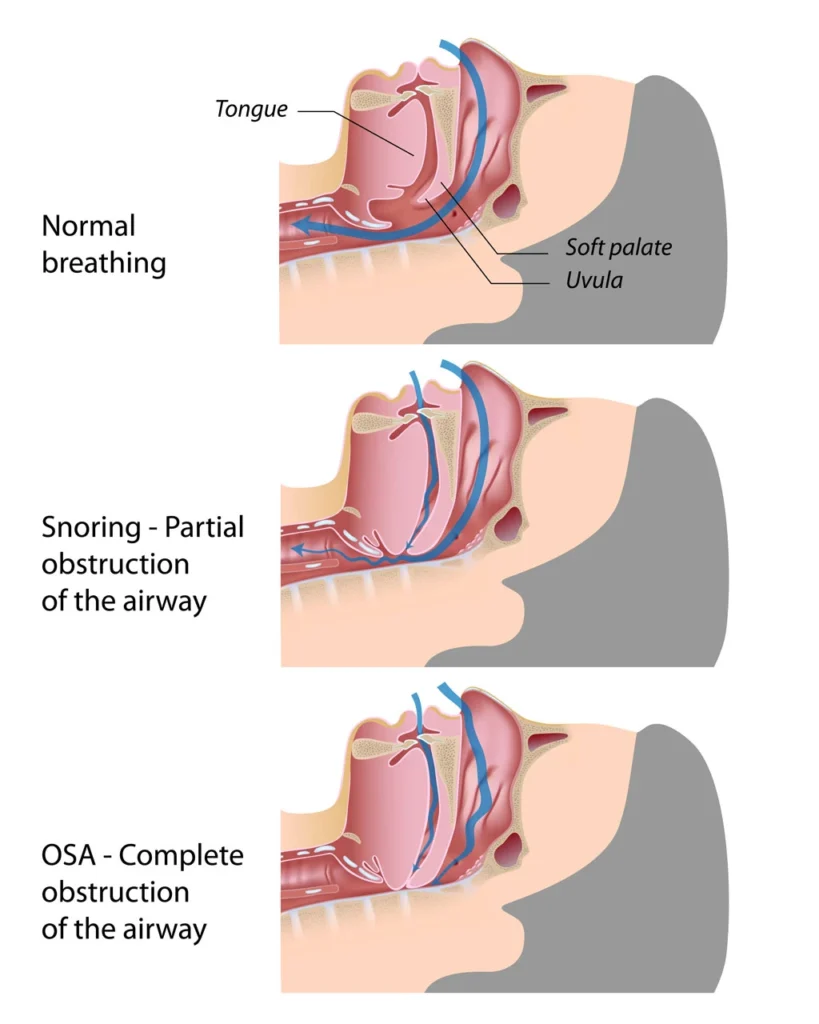
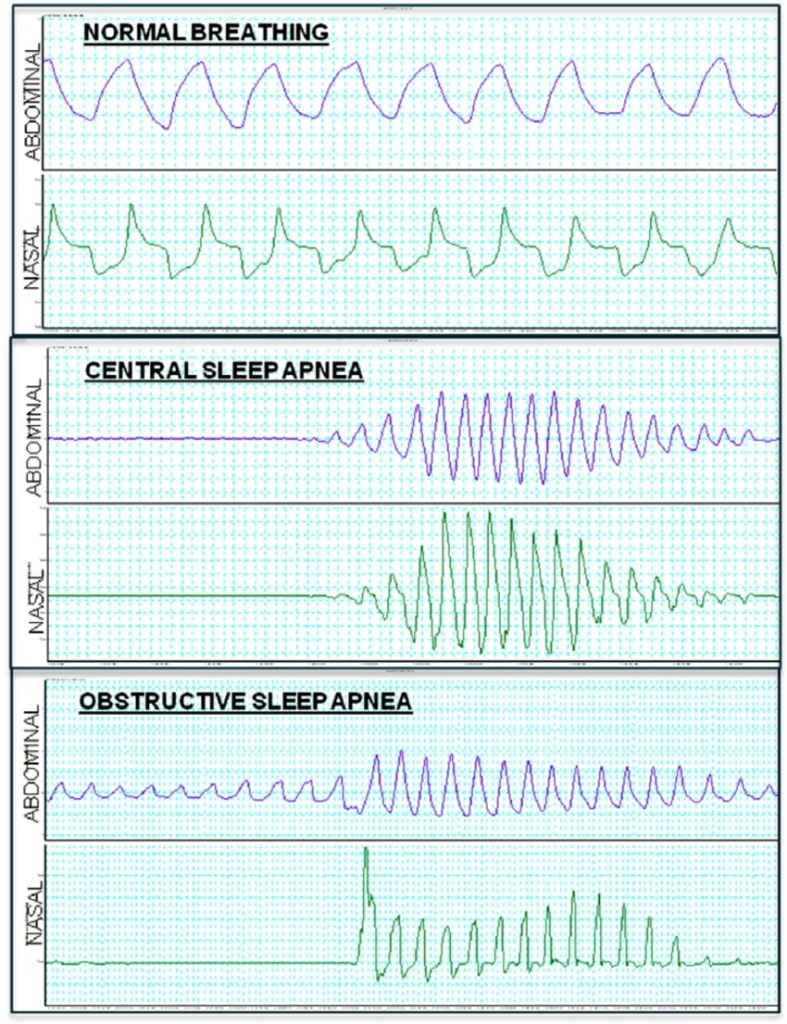
Symptoms
The most common symptoms of sleep apnea includes:

Loud snoring

Pauses, in which you stop breathing during sleep
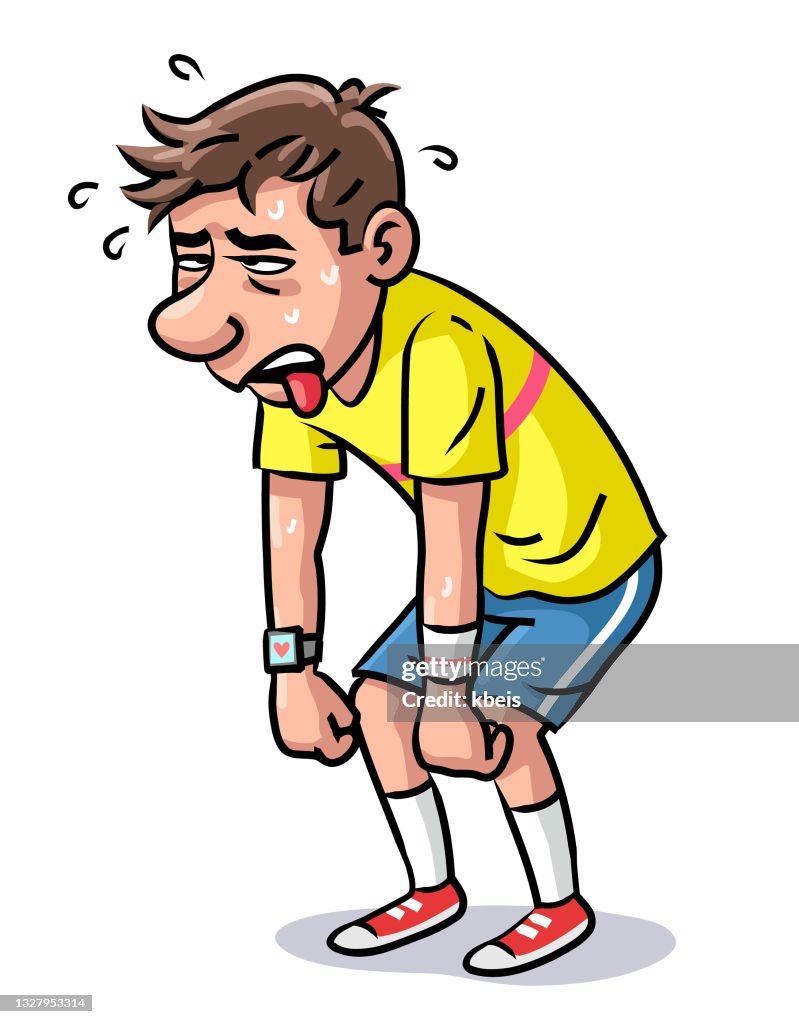
Gasping for air during sleep
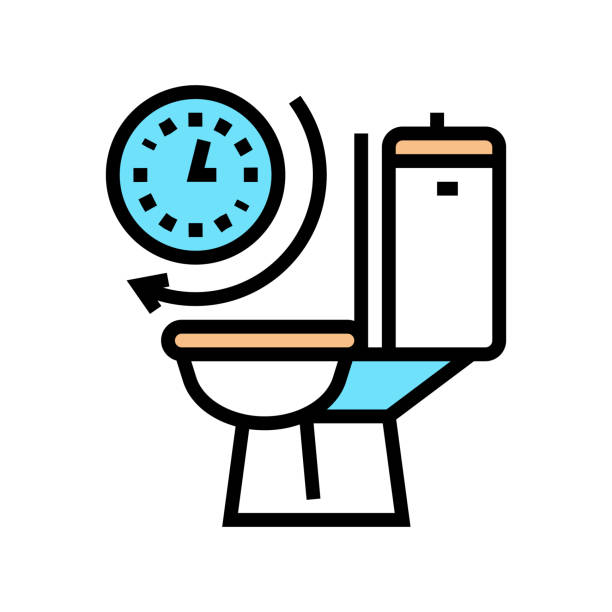
Frequent visits to washroom
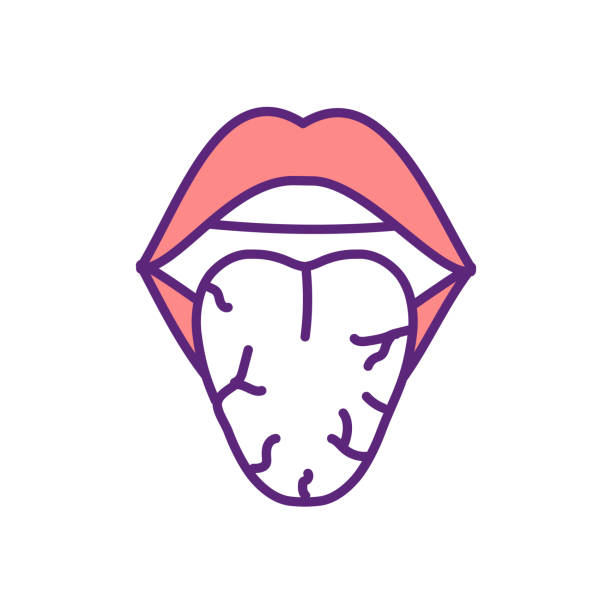
Awakening with a dry mouth
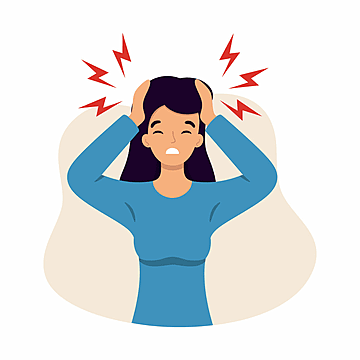
Early morning headache
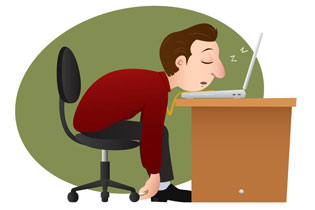
Excessive daytime sleepiness, known as hypersomnia
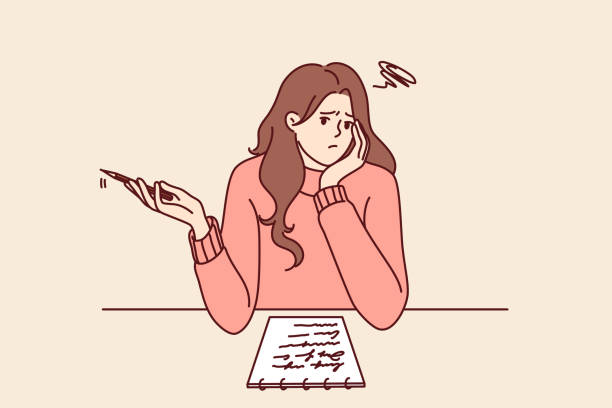
Difficulty paying attention while awake
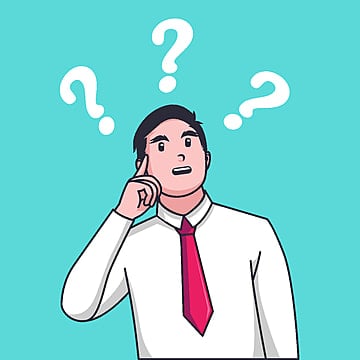
Irritability and poor concentration
Short-term memory loss
- Obesity (BMI of 25 or more)
- Neck circumference (17-inches or more in men and 16-inches or more in women)
- Narrowed Airway: You might have inherited a narrow throat. Tonsils or adenoids also can enlarge and block the airway, particularly in children.
- Being male: Men are 2 to 3 times more likely to have sleep apnea than are women
- Being older
- Family history
- Use of alcohol, sedatives or tranquilizers.
- Smoking. Smokers are three times more likely to have obstructive sleep apnea.
- Nasal congestion. If you have trouble breathing through your nose due to anatomical problem or allergies, you are more likely to develop obstructive sleep apnea.
- Medical conditions. Congestive heart failure or heart disorders, high blood pressure and type 2 diabetes, stroke; are some of the conditions that may increase the risk of obstructive sleep apnea. Polycystic ovary syndrome, hormonal disorders, prior stroke and chronic lung diseases such as asthma, can increase risk.
Risk Factors
Sleep apnea can affect anyone including children and young people but following factors increase the risk:
Effects on Health
- Early morning headache
- High Blood Pressure & Hypertension
- Type 2 Diabetes
- Strokes
- Cardiovascular problems
- Memory loss
Effects on everyday Life
- Daytime Sleepiness
- Poor concentration
- Irritability & mood swings
- Low libido
- Lethargy
Contact us
Call Now
Lahore: 0334-4166790
Karachi: 0300-8281669
Islamabad: 0331-5202111
Peshawar: 0301-8555462
Quetta: 0336-9213181

